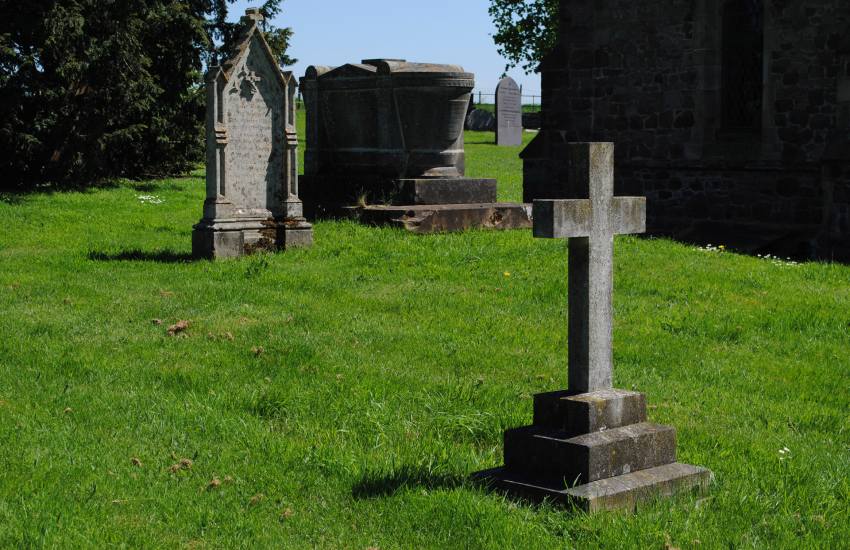Headaches arising for deceased estates without administrators
An industry lawyer has outlined some of the issues that can arise when dealing with the ATO where a deceased estate has no administrator appointed.
In an online article, Townsends Business & Corporate Lawyers solicitor Dominique Perry explained that a lot of complexities could arise when dealing with the Australian Taxation Office (ATO) with deceased estates, particularly when only an administrator or executor is entitled to deal with the process.
“If the deceased’s estate is very small, their executor under their will may not consider it worthwhile going to the expense and inconvenience of applying for a formal grant of probate,” said Ms Perry.
“Likewise if the deceased dies intestate, the next of kin [which is] generally the spouse, child or a close family member of the deceased, are able to be appointed by the court as the administrator of the estate, but again may not consider it practical to bother doing so for a small estate.”
The ATO states that the administrator must notify the ATO of the death and provide a death certificate and proof that the administrator has the authority to deal with the tax affairs of the deceased person.
The administrator must also lodge any outstanding prior-year income tax returns or prior-period business activity statements of the deceased person and lodge a final (date of death) income tax return or non-lodgement advice on behalf of the deceased person as necessary.
The administrator is also responsible for lodging a final BAS for the concluding tax period, which ends the day before the death, and cancelling the deceased GST registration, if they were registered for GST.
Ms Perry said this means there could be headaches where there is no will, executor or administrator of the estate.
She gave an example involving a deceased estate of a woman in her early eighties, Jane, and her daughter, Rachel. Everything of value owned by Jane, she held as a joint tenant with her husband, who automatically inherited all her assets pursuant to the rules of survivorship.
“Her estate was therefore worth next to nothing. Knowing this would be so, she didn’t bother making a will,” explained Ms Perry.
Jane’s daughter Rachel made the decision not to incur the expense and go through the trouble of applying to be appointed as the administrator of her late mother’s estate, given that Jane’s estate was so small.
“Wanting to do the right thing, Rachel simply tried to lodge the tax return for her mother up to the date of death. The ATO refused to accept the tax return for the financial year unless it was signed by the deceased’s legal personal representative i.e. administrator,” said Ms Perry.
While Jane explained that she wasn’t going to apply to be appointed as the administrator, Ms Perry said the ATO still requested a letter of administration.
Ms Perry noted that Rachel could not apply for letters of administration because the NSW Court will not make a grant of letters of administration if there are no assets for administration that are held in NSW. Jane had no such assets.
“Rachel was frustrated and lodged a formal complaint to the ATO. The ATO told her to lodge a Notification of Deceased Person and a certified Death Certificate to verify that Jane had deceased and to officially notify the ATO. She did this,” she said.
“The ATO then reiterated that the tax return couldn’t be lodged except by Jane’s administrator. Rachel was going round in circles.”
Ms Perry stated that the Inspector-General of Taxation and Taxation Ombudsman has outlined that the ATO is currently working on policies to rectify issues.
“The ATO’s challenges in this area of deceased estates go a lot further than just Rachel’s problems and include:
- A lack of acknowledgement from the ATO following notification of the death of a taxpayer;
- Difficulties or delays obtaining a deceased estate tax file number;
- Inconsistent steps for executors to provide their identity to access information, which is made more challenging in instances where the taxpayer died intestate;
- Inconsistent advice and requirements to obtain probate or letters of administration;
- Inability to appoint registered tax practitioners or solicitors as authorised contacts;
- Difficulties or delays in accessing taxpayer information for the purposes of finalising taxpayer and deceased estate trust returns; and
- Denial of access to the ATO portals.
“All taxpayer advisers, including tax practitioners, financial planners, trustees and estate service providers, are welcome to provide to the ATO or the IGTO examples and suggestions for improving the administration of the tax laws and systems for deceased persons,” she said.

Miranda Brownlee
Miranda Brownlee is the deputy editor of SMSF Adviser, which is the leading source of news, strategy and educational content for professionals working in the SMSF sector.
Since joining the team in 2014, Miranda has been responsible for breaking some of the biggest superannuation stories in Australia, and has reported extensively on technical strategy and legislative updates.
Miranda also has broad business and financial services reporting experience, having written for titles including Investor Daily, ifa and Accountants Daily.








